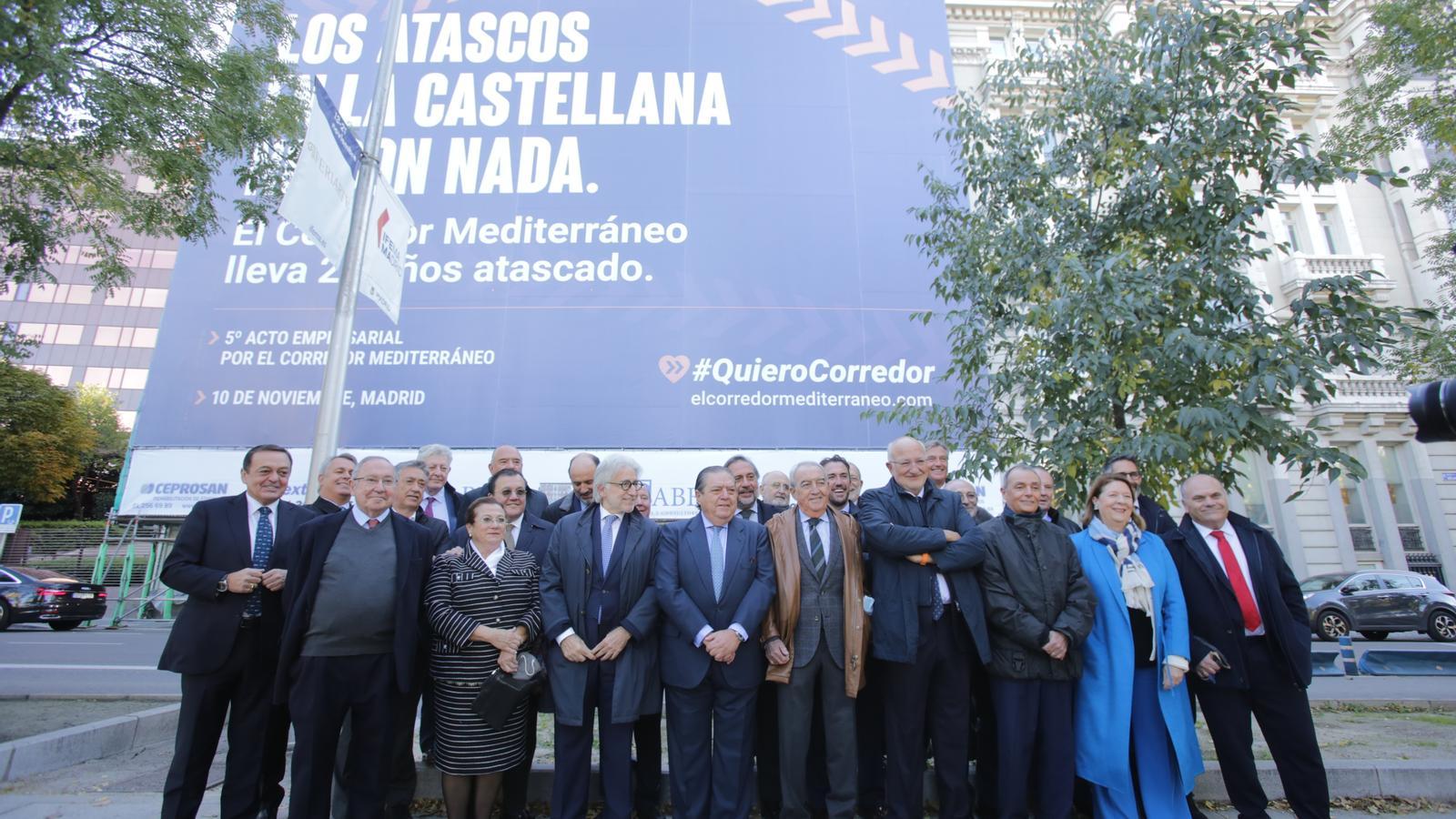

More than 1,300 businessmen met this Wednesday at the fairgrounds of Ifema, in Madrid, to demand the acceleration of the construction of the Mediterranean Corridor. They were convened by the platform Quiero Corredor, driven by the Valencian Association of Entrepreneurs (AVE), which of late has been at the forefront of this historic claim which, however, has the support of entrepreneurs from regions around the Mediterranean regardless of their political allegiance. The Catalan government, as it does in other areas, such as financing, which presuppose an autonomous relationship within the State, has for years now ceased to be at the forefront of these claims, despite the fact that, logically, the Catalan business community is fully committed to it and demands support from the Catalan Government. We must remember, however, why we still do not have this corridor and, also, why it is likely that we will have it before 2030. We do not have it because the People's Party did not want it and continues to consider it a threat to its project of a radial Spain in which everything has to begin and end in Madrid, be it trains, money or companies. So little did it want it that in 2012, when Rajoy was in government, Spain was the only country in the European Union to vote against it because its proposal was to make the Mediterranean Corridor also pass through Madrid and connect it with Europe with a tunnel through the Aragonese Pyrenees that the French refused to endorse. And we will have it because Europe does consider it a priority project and, therefore, assumes 40% of its cost. Furthermore, there is unanimity among the business world that it is a necessary and fundamental infrastructure to boost the Spanish economy.
Once the context is set, that is, the political reason why we do not have the infrastructure, it is necessary to join the clamor that calls for the corridor. Yesterday the businessmen –among them the president of Foment, Josep Sánchez Llibre; the president of Mercadona, Juan Roig, or the president of CaixaBank, José Ignacio Goirigolzarri- showed their disappointment over the delay in the works, which, they affirm, will mean that they will not be finished by 2025, as the Spanish government had committed itself to almost two years ago. Yesterday the Minister of Transport, Raquel Sánchez, did not want to give a date.
As was recalled during Wednesday's event, 50% of the population, 47% of the business fabric, 62% of port freight traffic and 45% of GDP are concentrated in this corridor. This railway corridor that has to connect Algeciras with the French border (about 1,300 kilometres) through the European width (the Spanish incompetence in the issue of infrastructure design comes from afar) is key to making the economy more competitive not only in the places it will go through, but in the whole State, whose GDP, according to studies, could be increased by 2.2%. With all its complexity and the multiple derivatives connecting economic poles, between communities, between countries and between people, it is the main infrastructure that Catalonia and Spain need. Even for the most recalcitrant centralists it should be an unquestionable priority. Enough postponements and delays. No more excuses
